
"Poland Is Not Yet Lost", also known as the "Dąbrowski's Mazurka", and the "Song of the Polish Legions in Italy", is the national anthem of the Republic of Poland.

The War of the Polish Succession was a major European conflict sparked by a Polish civil war over the succession to Augustus II of Poland, which the other European powers widened in pursuit of their own national interests. France and Spain, the two Bourbon powers, attempted to test the power of the Austrian Habsburgs in Western Europe, as did the Kingdom of Prussia, whilst Saxony and Russia mobilized to support the eventual victor. The fighting in Poland resulted in the accession of Augustus III, who in addition to Russia and Saxony, was politically supported by the Habsburgs.

The Partitions of Poland were three partitions of the Polish–Lithuanian Commonwealth that took place toward the end of the 18th century and ended the existence of the state, resulting in the elimination of sovereign Poland and Lithuania for 123 years. The partitions were conducted by the Habsburg monarchy, the Kingdom of Prussia, and the Russian Empire, which divided up the Commonwealth lands among themselves progressively in the process of territorial seizures and annexations.

Augustus III was King of Poland and Grand Duke of Lithuania from 1733 until 1763, as well as Elector of Saxony in the Holy Roman Empire where he was known as Frederick Augustus II.
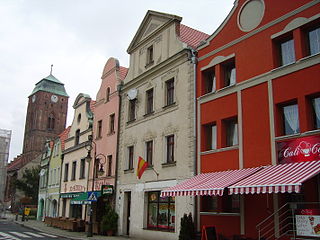
Żagań is a town in western Poland, on the Bóbr river, with 25,731 inhabitants (2019). The town is the capital of Żagań County in the historic region of Silesia. Previously in the Zielona Góra Voivodeship (1975–1998), Żagań has been in the Lubusz Voivodeship since 1999.

Adam Jerzy Czartoryski, in English known as Adam George Czartoryski, was a Polish nobleman, statesman, diplomat and author.

Marshal Edward Rydz-Śmigły, also called Edward Śmigły-Rydz, was a Polish politician, statesman, Marshal of Poland and Commander-in-Chief of Poland's armed forces, as well as a painter and poet.
Sławomir Rawicz was a Polish Army lieutenant who was imprisoned by the NKVD after the German-Soviet invasion of Poland. In a ghost-written book called The Long Walk, he claimed that in 1941 he and six others had escaped from a Siberian Gulag camp and begun a long journey south on foot, supposedly travelling through the Gobi Desert, Tibet, and the Himalayas before finally reaching British India in the winter of 1942.

The Polish Legions was a name of the Polish military force established in August 1914 in Galicia soon after World War I erupted between the opposing alliances of the Triple Entente on one side ; and the Central Powers on the other side, comprising the German Empire and Austria-Hungary. The Legions became "a founding myth for the creation of modern Poland" in spite of their considerably short existence; they were replaced by the Polish Auxiliary Corps formation on 20 September 1916, merged with Polish II Corps in Russia on 19 February 1918 for the Battle of Rarańcza against Austria-Hungary, and disbanded following the military defeat at the Battle of Kaniów in May 1918, against Imperial Germany. General Haller escaped to France to form the Polish army in the West against the anti-Polish German-Bolshevik treaty.
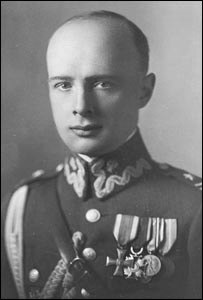
Jerzy Kazimierz Pajączkowski-Dydyński was a Polish veteran of World War I living in the United Kingdom. In 1915, he was conscripted into the Austro-Hungarian army, and he later fought for Poland, reaching the rank of colonel. Upon the German invasion of Poland that triggered World War II in 1939, he escaped with his family to Romania, then France and finally England after France capitulated to Germany in June 1940. In later life he worked as a gardener in Scotland before moving to Cumbria with his daughter. He died at a nursing home, aged 111 years and 140 days, and had been Britain's oldest living man.
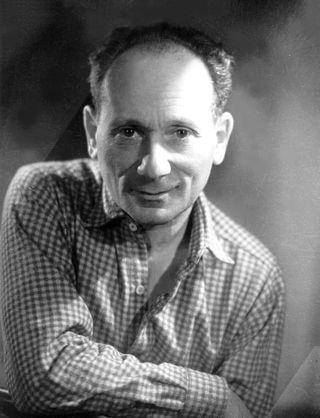
Julian Stryjkowski was a Polish journalist and writer, known for his social prose and radical leftist leanings. He was considered one of the best Polish-Jewish writers of the communist era.

Franciszek Ksawery Lampi, also known as Franz Xaver Lampi, was a Polish Romantic painter born in Austria of ethnic Italian background. He was associated with the aristocratic circle of the late Stanisław II Augustus, the last Polish king before the foreign partitions of Poland. Lampi settled in Warsaw around 1815 at the age of 33, and established himself as the leading landscape and portrait artist in Congress Poland soon after Napoleon's defeat in Russia.
Jerzy Bulanow was a Russian-Polish footballer who played as a defender.

Dmytro Semenovych Klyachkivsky, also known by the pseudonyms of Klym Savur, Okhrim, and Bilash, was a commander of the Ukrainian Insurgent Army (UPA), first head-commander of the UPA-North. He was responsible for the ethnic cleansing of Poles from Volhynia.
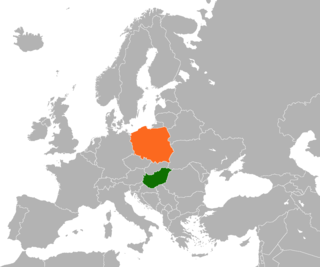
Hungary–Poland relations are the foreign relations between Hungary and Poland. Relations between the two nations date back to the Middle Ages. The two Central European peoples have traditionally enjoyed a very close friendship, brotherhood and camaraderie rooted in a deep history of shared rulers, cultures, struggles, and faith. Both countries commemorate their fraternal relationship on the 23rd of March.

Austria–Poland relations are foreign relations between Austria and Poland. The two nations have a very long historical relationship dating back several centuries, which has been complicated throughout most of their history.

Italy–Poland relations are cultural and political relations between Italy and Poland. The strong historical ties between both countries, such as the Roman Catholic religion and common fights for independence, have caused many to call the relationship the Polish–Italian brotherhood. Italy has given full support to Poland's membership in the European Union and NATO.

George Charles Malcher also known as G.C. Malcher or Jerzy Karol Malcher was a writer, historian, and political analyst educated in the field of law at the Jagiellonian University of Kraków in the Interwar Poland. He is the author of two nominal books about the history of Poland and Polish-Soviet relations under Communist dictatorship: Poland's Politicized Army (1984), and Blank Pages, Soviet Genocide Against the Polish People (1993).
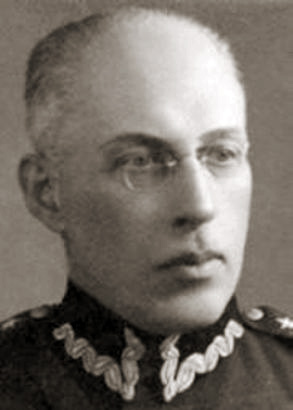
Adam Józef Aleksander Epler was a Colonel of Artillery of the Polish Army, posthumously promoted to Generał brygady. Epler had a wife Zofia and son Zbigniew.
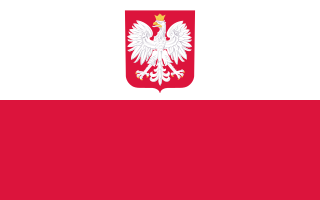
A Polonophile is an individual who respects and is fond of Poland's culture as well as Polish history, traditions and customs. The term defining this kind of attitude is Polonophilia. The antonym and opposite of Polonophilia is Polonophobia.

















